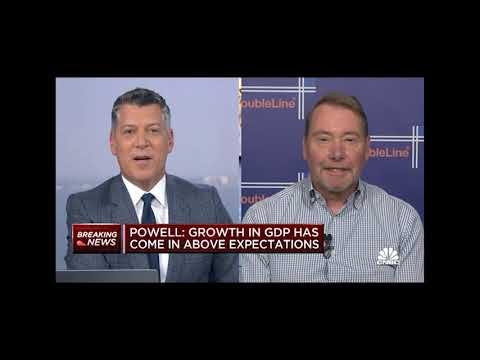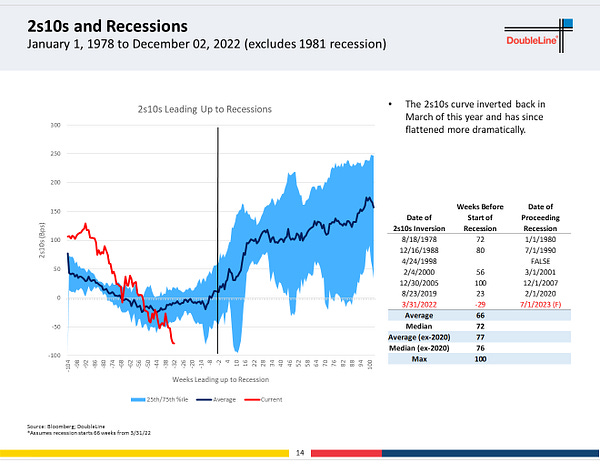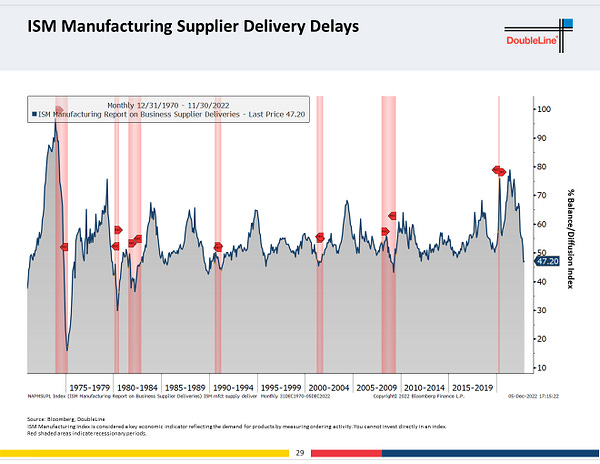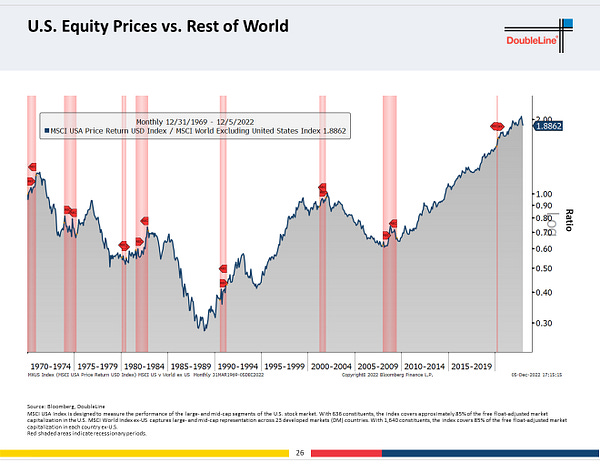Meanwhile, “Call Me Ken” 🫣
☑️ #3 Sep 21, 2023
What kind of a man watches Barbie?
williamhgross.com: A majority of vocal professional investors seem to expect a peak in short term rates in the next few weeks and for the Fed to lower yields several times in 2024, perhaps initiating a mini-bond bull market in the process.
☑️ #2 Sep 20, 2023
Gundlach: “One of the best decisions we’ve had in a while”
@DLineCap: DoubleLine CEO Jeffrey Gundlach shares his outlook with @ScottWapnerCNBC following the FOMC release and Fed Chair Powell's press conference.
#rates #bonds #inflation #QT #higherforlonger
Related content:
☑️ #1 Dec 7, 2022
Recession Signals: Gundlach, U.S. Will Face Recession by Mid-2023
DoubleLine Total Return Webcast » 1:15 PM PT ⤵️
Jeffrey Gundlach, Chief Executive Officer and CIO. DoubleLine Capital
Andrew Hsu, PMs of the Total Return Bond Fund. DoubleLine Capital
⚡️
Transcript: “Expect a recession by the middle of next year,” Jeffrey Gundlach warned investors. The Fed’s monetary tightening will not be as aggressive as expected, he said, but high rates will dampen housing, consumer spending and other sectors, and will force the economy to contract.
Updated ✅
Complete thread (for non-Twitter users) ⤵️
Gundlach: There have been four QE’s, going back to 2008-2010. 201 billion of quantitative easing. A short while later, QE2 started November 2010, $565 billlion. QE 2012-2014, nearly $1.7 trillion. And then 2020-22 QE4 $4.6 trillion






































